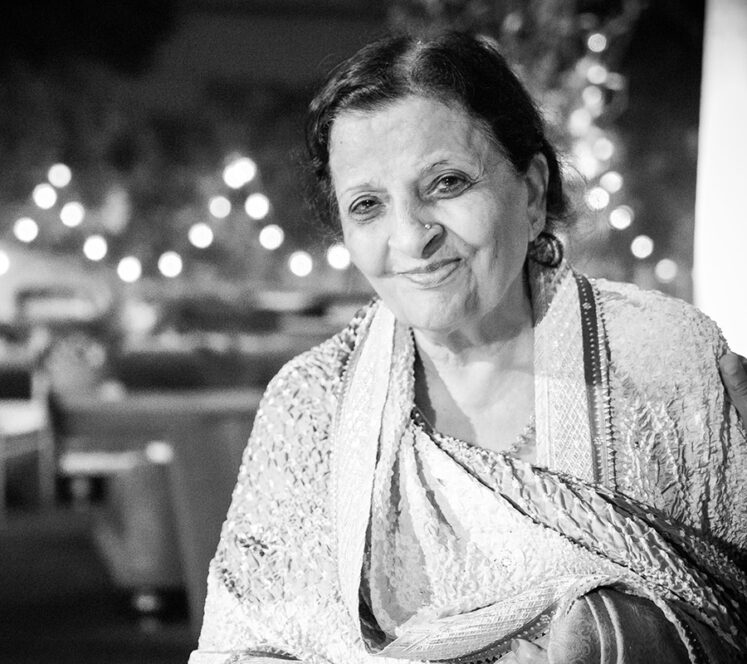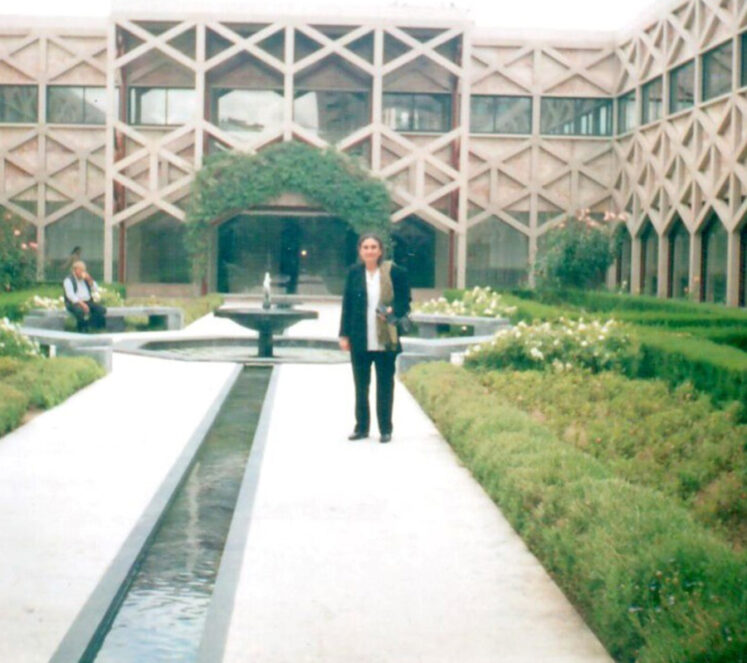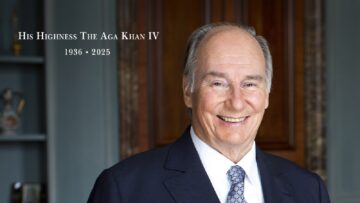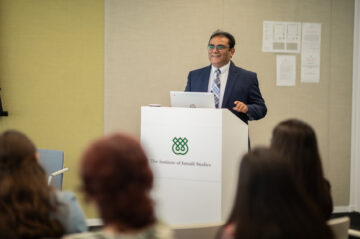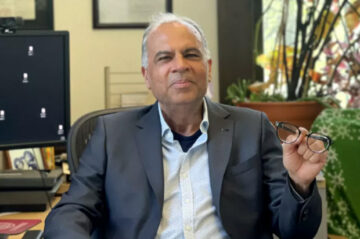On this International Women’s Day, we celebrate the lives of remarkable Ismaili women, whose stories resonate with strength, hope and wisdom.
Documenting Ismaili women’s experiences of social change in the last century is one of the strategic aims of the IIS’ Oral History Project (OHP). Using a life-story approach to interviewing elders, the OHP aims to preserve the intangible heritage of Ismaili communities around the world and thereby create a repository of contemporary history. Here we highlight a few of the remarkable women interviewed by the OHP.
Born in 1936, Zohra Noorali Rashid served as the first mukhiyani (one of usually four functionaries at each Ismaili jamatkhana appointed at the discretion of the Ismaili Imam to officiate over religious ceremonies) of the Dubai jamat and has vivid memories of Aga Khan III’s Diamond Jubilee in Hasanabad, Bombay. She was interviewed alongside her son Naushad Noorali Rashid, a former community leader. She reminisces, “We went to Karachi from Gawadar on a big boat and then on a steamer from Karachi to Bombay. The whole jamat got together in Hasanabad. I was young so I don’t remember everything, but I do remember didar (lit. ‘seeing’; when the Imam of the Time visits a JamatAssembly or religious congregation; also a term used by the Nizari Ismailis for their individual communities.). It was very good, I remember it. The programme would go on day and night, Dandiya-Raas (Gujarati folk dance with sticks) and we used to get food, it was very well arranged in India. We were given coupons and we had to stand in a queue to get the food. We were given food for each person in the household, and we would go back to our camps to eat it.” Zohra Noorali Rashid was interviewed in Urdu for the Oral History Project in January 2023, via Zoom, from her home in Dubai.
Siramdam Begum has served as a lifelong volunteer and has received awards from the Aga Khan Rural Support Programme, Pakistan, for her services to community development. Now in her mid-80s, she was interviewed for the project in Gilgit, North Pakistan, in 2022. Sharing her childhood memories of growing up in a remote, inaccessible and impoverished North Pakistan in the 1950s, she says, “As there were no schools, in our childhood, we used to take our cattle to the orchards. We would spend time looking after the cattle while they grazed before bringing them back to barns. We also used to help our parents with routine chores like harvesting wheat and picking apricots. That is how we used to spend our time.” Siramdam was interviewed in Burushaski, a language isolate spoken by the Burusho people in the Gilgit-Baltistan region of Pakistan.
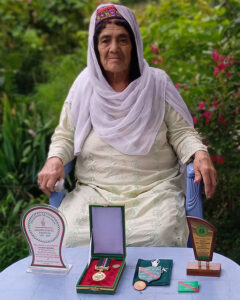
Siramdam Begum with her collection of awards and medals. Siramdam Begum was interviewed for the Oral History Project in Gilgit, Gilgit-Baltistan, Pakistan, by Hassan Ali Shah (a GPISH student). Image Credit ISCU
Yasmin Mustafa Aldebiyat is one of the first female graduates from Syria to attend the IIS’ Waezeen and Teacher Training Programme. She has been working as a scholar with ITREB Syria since her graduation. Yasmin cherishes the memories of her time at the IIS, stating, “In 1983, the chairperson of Ismailia Association attended the graduation ceremony of the IIS students, and one of the directors asked him, why don’t you send an Alwaeza (preacher) woman? As I was the only religious education teacher at the time in SalamiyyaA city in central Syria, which was the residence of several early Ismaili imams in the pre-Fatimid period., he asked me, and I went to my family to discuss it with my father. He said to me if I can cope with it, I should go. And I went. Three years, it was marvellous in my life. Very much, I impacted people and I’ve been impacted by them. My friends were very nice, I had the exposure to other Ismaili jamat. I had the exposure to English culture. I had the exposure of new techniques of learning. It changed my way of thinking.”
About the Oral History Project
As part of its aims, the IIS Oral History Project (OHP) is dedicated to celebrating Ismaili women by documenting their life stories, memories, and experiences. Through recording, preserving, and sharing the diverse narratives from various social, cultural, linguistic and regional contexts, the project aims to honour the contributions, resilience, and wisdom of Ismaili women representing their diverse communities around the world.

